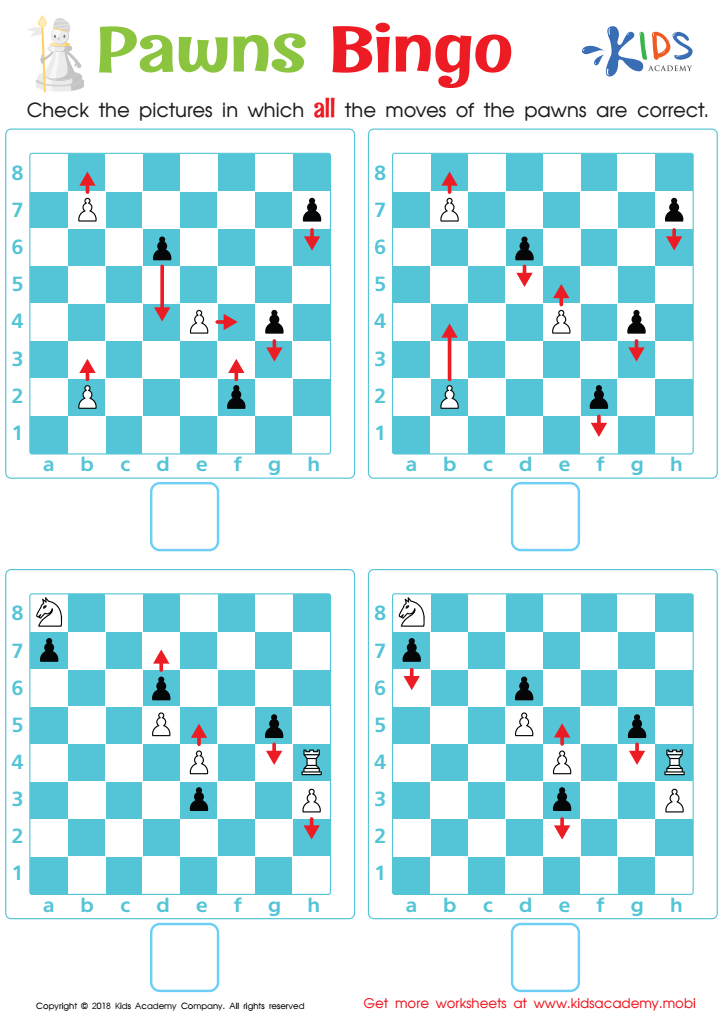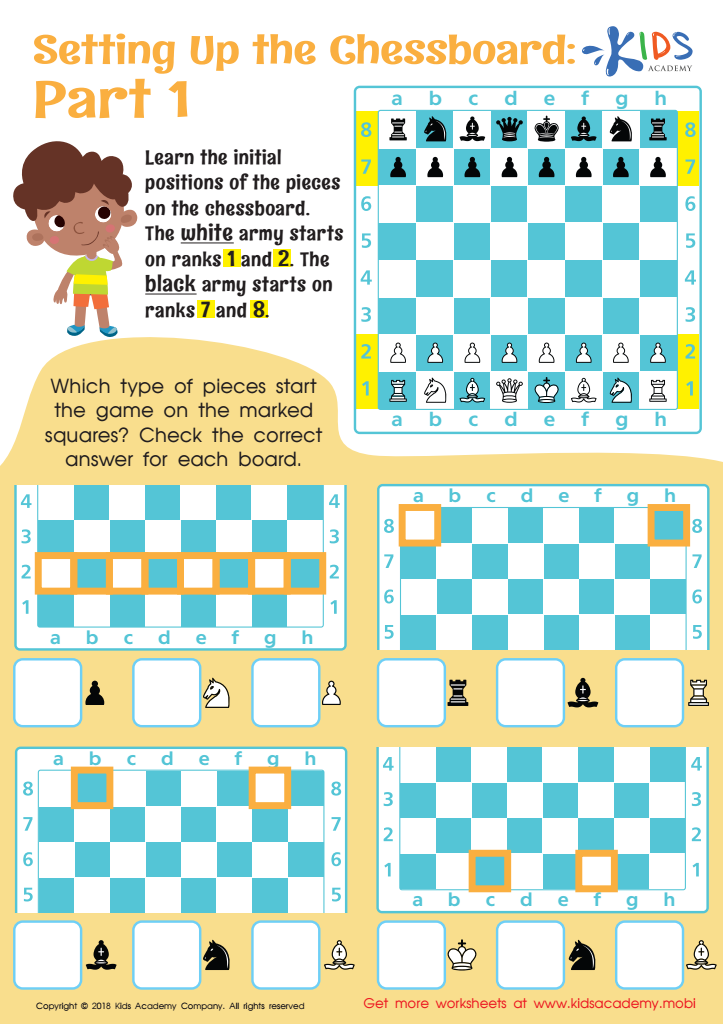Chess basics understanding Worksheets for Kids
2 filtered results
-
From - To


Pawns Bingo Worksheet


Setting up the Chessboard: Part 1 Worksheet
Question/Answer
How does the mastery of the Chess basics understanding skill affect a student's performance at an early age?
The mastery of Chess basics significantly improves a student's performance at an early age by enhancing cognitive skills, including problem-solving, critical thinking, and spatial reasoning. It also fosters patience, discipline, and planning abilities. These skills are transferable, positively impacting academic performance and other areas of intellectual and personal development.
What are some effective activities to train students’ Chess basics understanding skill when teaching them about Chess?
Effective activities for training students in Chess basics include setting up and solving puzzles focused on fundamental tactics (like forks, pins, and skewers), playing mini-games that emphasize understanding of piece values and movements (such as Pawn wars or the Knight's tour), and reviewing and analyzing classic games to highlight strategic principles and decision-making processes.
Why is the Chess basics understanding skill important for Grade 1 students?
Understanding chess basics is important for Grade 1 students as it develops critical thinking, problem-solving skills, and improves memory. It also teaches patience, planning, and the consequences of actions, fostering early strategic thinking. Additionally, chess can enhance concentration and focus, valuable skills for academic learning and overall cognitive development at a young age.
 Assign to the classroom
Assign to the classroom



.jpg)








